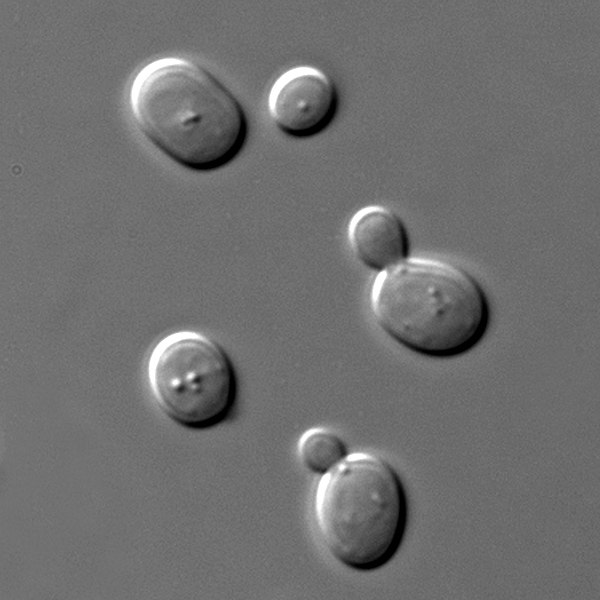In this link you have a game to learn easily and in a funny way the periodic table. Let's play!
What do you think of this periodic table?
miércoles, 30 de abril de 2014
miércoles, 23 de abril de 2014
Cromosoma artificial
Un consorcio de laboratorios de Estados Unidos y Europa, ha conseguido crear un cromosoma artificial de la levadura Saccharomyces cerevisiae, un organismo unicelular eucariota.
El primer paso fue modificar organismos genéticamente, ahora, se pretende crearlos.
Las biología sintética, puede conseguir con este avance, importantísimas aplicaciones a distintos campos de la industria o la medicina.


Presentamos enlace a un sencillo esquema en el que se explican las diferentes fases del proceso
esquema del proceso
Jef Boeke lidera el equipo científico multidisciplinar de Estados Unidos y Europa

Vídeo
También hay información en Investigación y Ciencia (inglés) y Pour la Science (francés)
El primer paso fue modificar organismos genéticamente, ahora, se pretende crearlos.
Las biología sintética, puede conseguir con este avance, importantísimas aplicaciones a distintos campos de la industria o la medicina.


Presentamos enlace a un sencillo esquema en el que se explican las diferentes fases del proceso
esquema del proceso
Jef Boeke lidera el equipo científico multidisciplinar de Estados Unidos y Europa
Vídeo
También hay información en Investigación y Ciencia (inglés) y Pour la Science (francés)
martes, 8 de abril de 2014
Interviewing women scientists
Women have had an extraordinary important role in the development of science. Just have a look at the discoveries of Marie Curie, Rachel Carson or Helen Mitchell. However most of them have remained unknown or obscured because of their condition of women in a traditional society.

Let's now discover some of their findings!
You can do it in two different ways:
1. Chose a woman scientist from the past.
Write now a short biography (10 lines) including her main finding.
Imagine you're a journalist and you have the opportunity to interview her. What would you ask? (5 questions at least). Imagine her answers.
2. If you now any current woman scientist interview her (real live interview) and write down her answers. Then write down what is she working on and some of her findings.
Here you have some links that may help you:
https://www.youtube.com/watch?v=x9bBboP8zZU
http://news.ncbs.res.in/story/women-science
Let's now discover some of their findings!
You can do it in two different ways:
1. Chose a woman scientist from the past.
Write now a short biography (10 lines) including her main finding.
Imagine you're a journalist and you have the opportunity to interview her. What would you ask? (5 questions at least). Imagine her answers.
2. If you now any current woman scientist interview her (real live interview) and write down her answers. Then write down what is she working on and some of her findings.
Here you have some links that may help you:
https://www.youtube.com/watch?v=x9bBboP8zZU
http://news.ncbs.res.in/story/women-science
Suscribirse a:
Comentarios (Atom)
